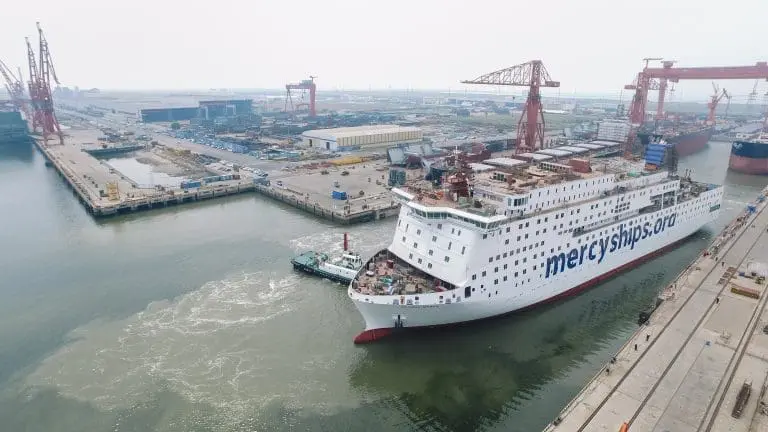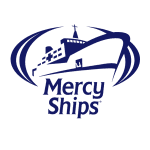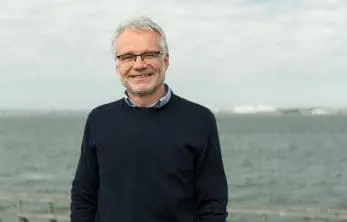Global Mercy – The world´s largest civilian hospital ship – protected with Selektope®
Newbuild hospital ship – painted with a Selektope®-containing antifouling coating
I-Tech AB’s unique, barnacle repelling biotechnology Selektope® has been selected to protect the new hospital ship Global Mercy from barnacle fouling while docked for long periods of time at ports located in biofouling red zones off the coast of sub-Saharan Africa.
Mercy Ships is a charitable organization whose volunteers provide medical treatment and undertake urgent operations in some of the poorest countries in the world onboard hospital ships docked in local ports. Since 1978, its medical missions have worked in more than 56 nations, providing services worth over GBP 1.2 billion and helping more than 2.7 million people. The charity currently operates the converted passenger-ship Africa Mercy, but will more than double its capacity to help those in need when the custom-built Global Mercy enters into active service in mid-2021.

The contract to build Global Mercy was awarded to the Xingang shipyard in Tianjin, China in 2014, with Stena RoRo appointed by Mercy Ships as project manager. When considering the hull coating for Global Mercy, Stena RoRo selected a novel, but proven antifouling product from a European paint manufacturer containing Selektope® that would protect the hull from hard fouling during extensive static periods. In support of the charity’s vital work, I-Tech AB is donating the required volumes of Selektope® to Mercy Ships.
Tom Stogner, CEO of Mercy Ships says:
“We welcome Stena RoRo’s selection of a Selektope®-containing antifouling coating for Global Mercy and thank I-Tech for the donation of their technology in support of our mission. The use of the latest technological innovations to safeguard Global Mercy against biofouling when static is of prodigious importance to us.”
For any vessel spending time idle for extended periods, the risk of barnacle colonization on the hull is very high. The nature of Mercy Ships’ voluntary aid work means that its vessels are often static in port for up to 10 months. Barnacle fouling could be a costly nuisance for Mercy Ships, both due to increased fuel costs when the hospital ship is sailing due to increased frictional resistance on the hull, and costs associated with drydocking to mechanically remove hard fouling.
Per Westling, Managing Director of Stena RoRo says:
“Stena RoRo is extremely proud to be involved in the building of Global Mercy and to manage the production process. We identified Selektope® as the most suitable, innovative technology to ensure that the hull of this new hospital ship does not suffer from the negative effects of barnacle fouling, even when idling for many months.”
About the Global Mercy
Length: 174 meters
Breadth: 28.6 meters
Draught: 6.15 meters
Gross weight: 37,000 tonnes
Deadweight: 4,500 tonnes
Total area: 30,000 square meters
Read more about Mercy Ships here

